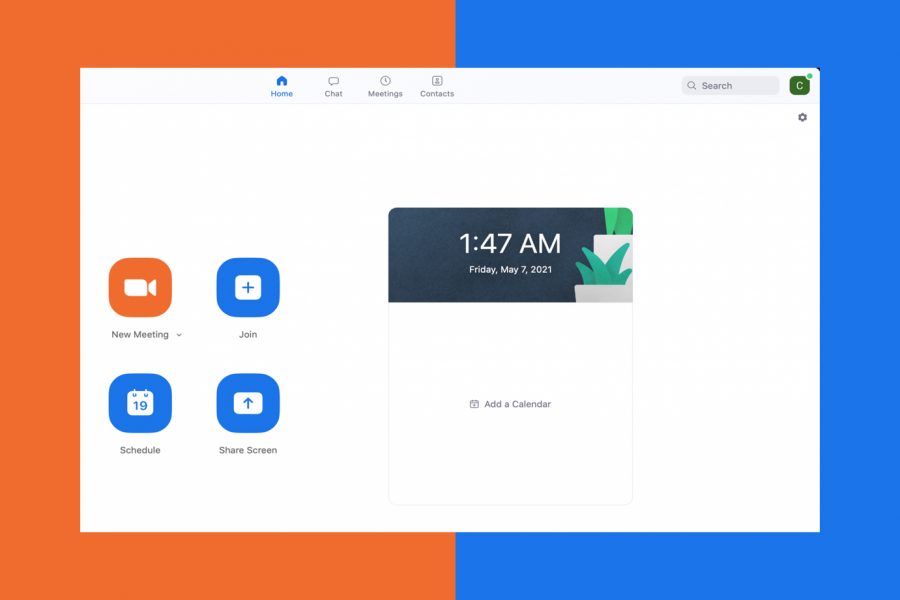Online classes impact student experience
A screenshot of the Zoom landing page is shown above. Columnist Matthew Krauter argues that it’s about time that Zoom exits our lives to make way for in-person classes in the fall.
May 10, 2021
Sitting at home in pajamas and logging on to Zoom to take classes, the typical student experience was significantly different this school year. Online classes had many impacts on student life.
The use of Zoom raised privacy concerns. It started during an I-Connect meeting on April 29, 2020, when multiple individuals virtually hijacked the workshops, shouting racial slurs and bearing swastikas. This was the first high-profile instance of Zoombombing at the University.
On Jan. 20, the University announced in a Massmail that all University Zoom accounts will be required to sign in to Zoom using Shibboleth Single Sign On (SSO) beginning Feb. 7. This was an effort by the University to securely authenticate identities of students.
The world of online classes saw professors exploring new modes of teaching, such as using virtual meeting rooms which resemble an old 8-bit video game.
The structure of online classes also raised another issue: How would students be tested?
After the University shifted to online classes in March of 2020, the University signed a contract with Proctorio, an AI-based online proctoring service which analyzes trends to prevent students from cheating during tests.
The University’s contract included what Proctorio was allowed to do with the data of students, and Proctorio also adheres to the Family Educational Rights and Privacy Act.
Nonetheless, complaints started forming among the student body about privacy violations and overreach by Proctorio.
From concerns about accessibility among students with disabilities to students who lack technology needs, Proctorio has been a large point of scrutiny among students.
On Sept. 30, 2020, a petition to ban Proctorio at the University was created. In January, the University announced it will end the emergency use license with Proctorio after this summer.
With the lack of socialization and zoom fatigue that comes with handling online classes, students also reported feeling burned out this semester.
As consideration for the hardships that students faced as a result of the pandemic, the University implemented a Credit/No Credit option for students, enabling them to finish off their classes without worrying about bad grades.
As a result, the University saw GPA inflation to different degrees in various colleges.
Looking ahead to the spring semester, the University plans to hold significantly more in-person classes. Although not a return to complete normalcy, the increase of in-person classes will surely be welcomed by many students after a tumultuous year of online classes.







